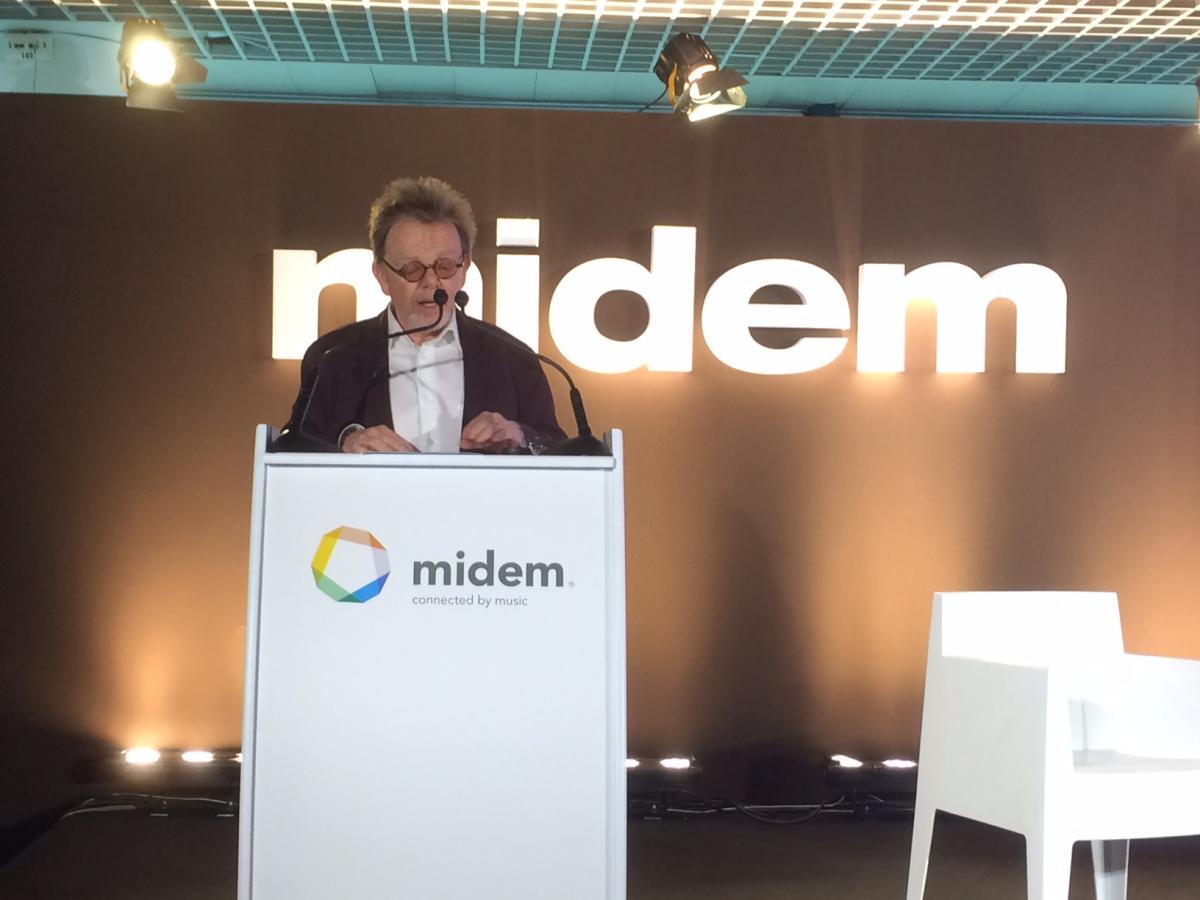MIDEM 2015: ASCAP President Keynote Address

Speaking at MIDEM 2015 in a passionate keynote address, renowned composer-songwriter and ASCAP President Paul Williams called for a "fair copyright reform that is viable for all". He said that songwriters were not anti-technology but against those eager to exploit it, thus precipitating the ongoing economic devaluation of music.
“It now takes an average of one million streams on Pandora for a songwriter and publisher to earn just $90 in royalties,” he said.
“Even a major hit song rarely earns its songwriter more than a few thousand dollars in digital royalties.
“As songwriters, we have no beef with technology,” he continued.
“Technology has also opened incredible new doors for audiences across the globe to access our music.
“The companies behind the delivery platforms and devices know that the demand for music will continue to grow globally. And they are looking to a future where their profits will continue to grow because of consumer demand for access.”
Mr Williams said that the industry was now at a crossroad and urged a considered reform that includes a “robust, voluntary collective licensing system.”
"Collective licensing is threatened today because of the outdated consent decrees," he said.
Pointing to the situation and recent developments in the United States, Williams stated that songwriters and publishers were asking the Department of Justice for three key law reform amendments.
"Number one. We need a faster, more efficient way to resolve rate disputes with licensees than the costly and time-consuming rate court process," he said.
"Number two. ASCAP should be able to provide all rights necessary for digital services to operate, such as performance and mechanical rights, which we are prohibited from doing today. This will benefit our members, our licensees and consumers. It is a way to simplify licensing and reduce transaction costs.
"Number Three: Our members should be able to grant the right to license their works to interactive services in the free market without any regulatory restraints. Currently, our members are not allowed to do that."
